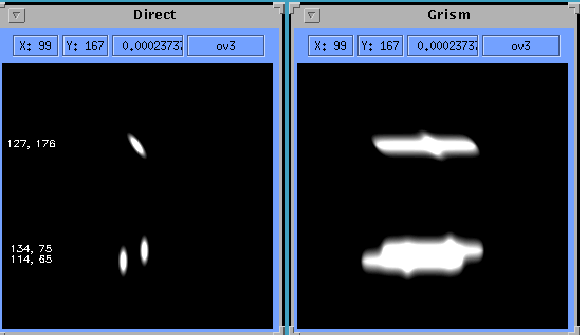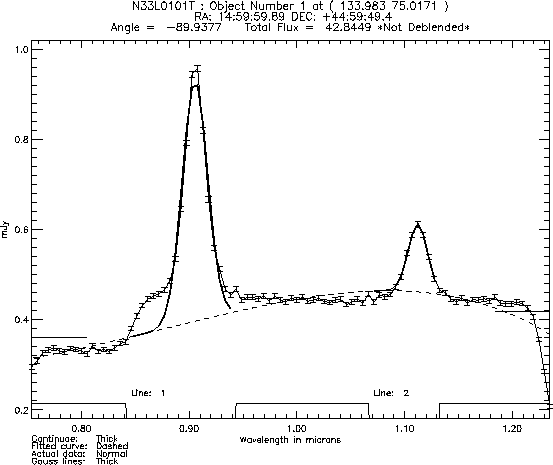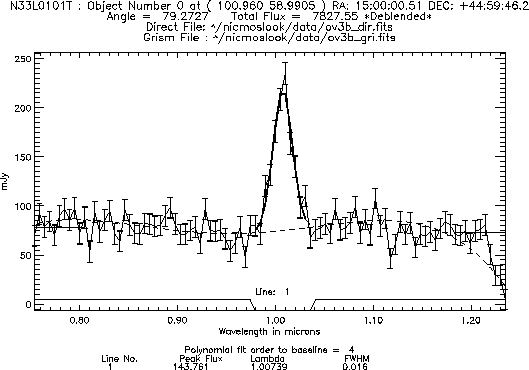



Next: Using Deblending
Up: Deblending Overlapping Objects
Previous: Unsolvable cases
In figure 3.8, an example of a grism image with overlapping
objects is given. The two figures that follow are the extracted spectra of
the object "0" (the object in between two objects). Figure 3.9
shows the spectra as it is extracted without first removing the contamination
from the nearby objects. Notice how the spectra contains not only the
contamination from the nearby objects, but a continuum that is much too high.
The second figure ( 3.10) shows the same object's spectrum after
it was extracted using the deblending algorithm. One can plainly see the
improvement as the continuum is lower and the peaks from the contaminating
objects are removed.
Figure 3.8:
Direct and grism image containing overlapping objects.
 |
Figure 3.9:
Example of an object that has not been deblended.
 |
Figure 3.10:
Example of the same object in figure 3.9 that has been deblended.
Note the additional error bars attached to each point which reflect
the uncertainty in the deblending procedure. Only a few points at the
very long wavelength side of the spectrum were not contaminated by the
neighboring spectrum, and only one error bar is give for those
points.
 |




Next: Using Deblending
Up: Deblending Overlapping Objects
Previous: Unsolvable cases
Wolfram Freudling
5/29/1999

